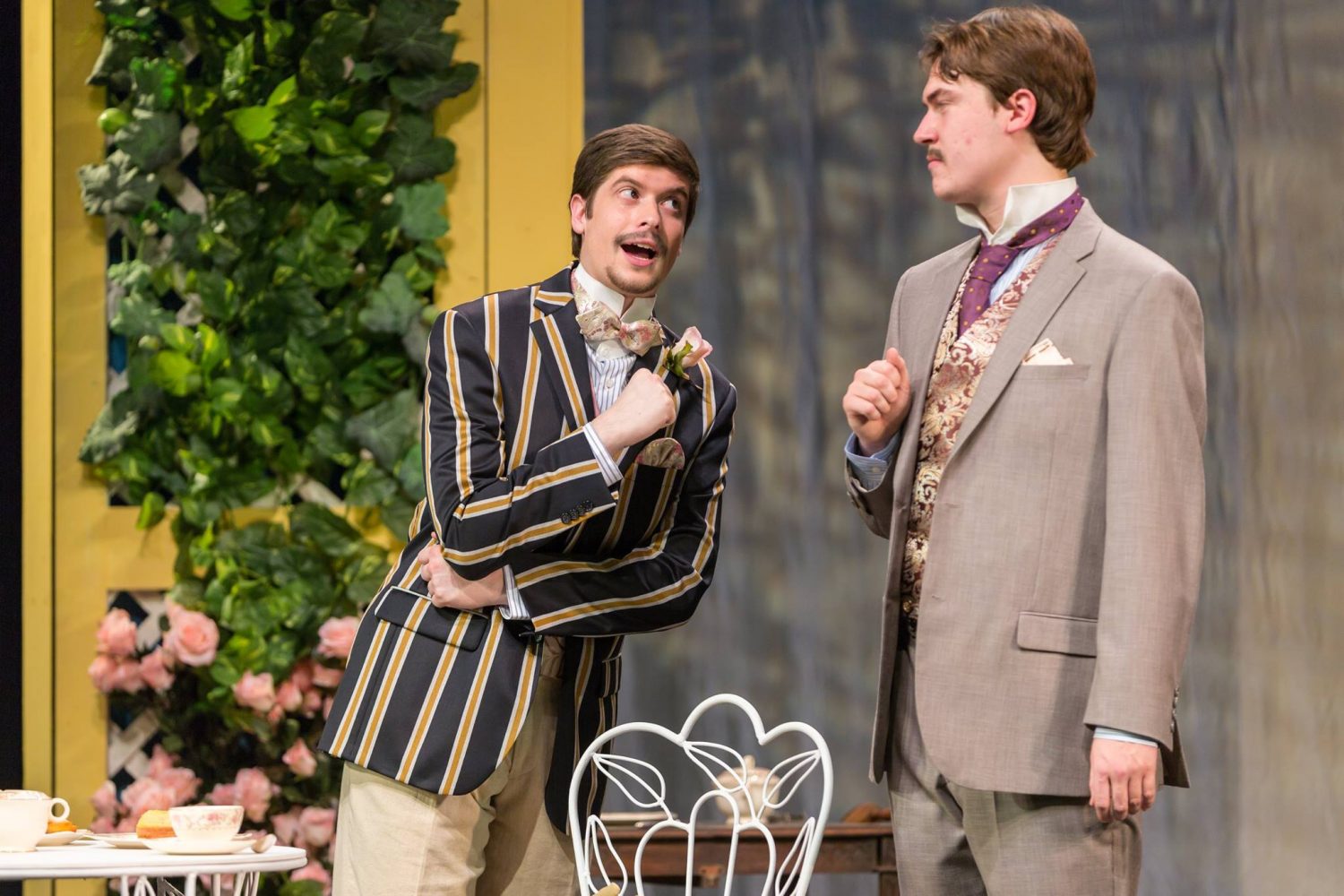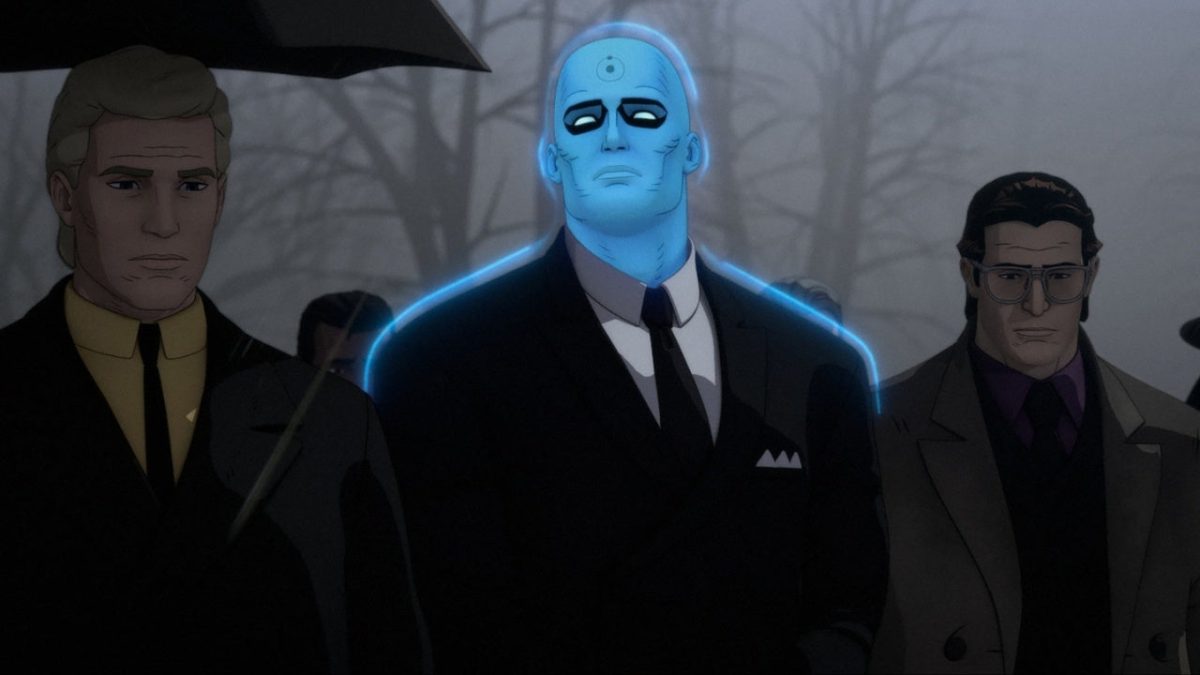Last Sunday, April 24, the University Theatre put on its last show of the Spring semester and the 2015-2016 season, and, boy, was it a good one: “The Importance of Being Earnest” by the incomparable Oscar Wilde. Making a mockery of stuffy etiquette, societal snobbery and the institution of marriage, Wilde’s famous play is as funny as it is pointed. And, let me tell you, people—it’s funny.
Featuring a darling cast of quirky characters, “The Importance of Being Earnest” stars the incorrigibly witty Algernon Moncrieff (Zachary Bakouris), affectionately called Algy—the nephew of the eminent and opinionated Lady Bracknell (Danny Guttas)—and John “Jack” Worthing (Joseph Kercher), the somehow both clever and befuddled friend of Algernon, who is first introduced to the audience as Earnest.
Our two leading men begin the show with a conversation surrounding the concept that becomes central to the play: “Bunburying.” It is the process of inventing a fake friend or relative who is often in need of help, thereby giving their inventor an excuse to escape from the pressures of society and family by going away to “help” them. We soon learn that, though Algy has coined the term, both he and Jack are up to their necks in “Bunburying.” Jack lives in the country, the guardian of a young woman named Cecily, a girl who has been told that “Earnest” is Jack’s younger brother—a rapscallion who’s always getting into things he shouldn’t, leaving Jack to go into town to clean up his mess. But really, Earnest doesn’t exist. Or rather, Earnest is really Jack and Jack is really Earnest. The younger brother that Jack has invented to escape the seriousness of the country is the name that Jack himself goes by during that escape into town; Earnest is his ultra ego. Jack has even gone so far as to convince everyone in town that his name is actually Earnest, even the woman he intends to propose to, Gwendolen Fairfax (Hannah Grimm), daughter of Lady Bracknell and cousin of our Algy.
This is problematic for Jack for numerous reasons. Perhaps most importantly, Gwendolen loves Earnest. Not the man who calls himself Earnest (though she is fond of him, too), but the name, as she says, “…my ideal has always been to love someone of the name of Earnest.” Oh, well, Jack better just change his name … but it seems the “Bunburying” has gone just a little too far. For, before Jack can say a thing about it, Algy is off to Jack’s country estate with young, pretty Cecily in mind and the name “Earnest” on his lips, intent on convincing her that he is the devilish younger brother of her beloved guardian. The brother named Earnest who has never really existed at all. With two people now both named and not named Earnest, we are really in a pickle – and a ridiculously hilarious one at that.
Topping the laughter charts was Danny Guttas’ Lady Bracknell, a woman who believes she knows everything while proving time and time again that wealth does not necessitate common sense. To this point, when Jack informs her that he was orphaned as an infant, Lady Bracknell quickly exclaims: “To lose one parent, Mr. Worthing, may be regarded as a misfortune; to lose both looks like carelessness!” Quips were certainly guaranteed whenever this high-status lady entered the stage.
Wrapped within the play’s bundle of hilarity lies beautiful grains of truth (all of which I’m positive someone somewhere has tattooed on something). The play gives the audience everything, both informing us of the proper way to eat muffins (“quite calmly”) to gifting us with statements like this of Algy’s: “All women become like their mothers. That is their tragedy. No man does. That’s his.”
This was not my first time seeing “The Importance of Being Earnest,” but I laughed just as hard the second time around. That’s the magnificence of Wilde’s writing: It’s so dangerously true, that even the end of the Victorian era couldn’t take away its humor – or its genius.








